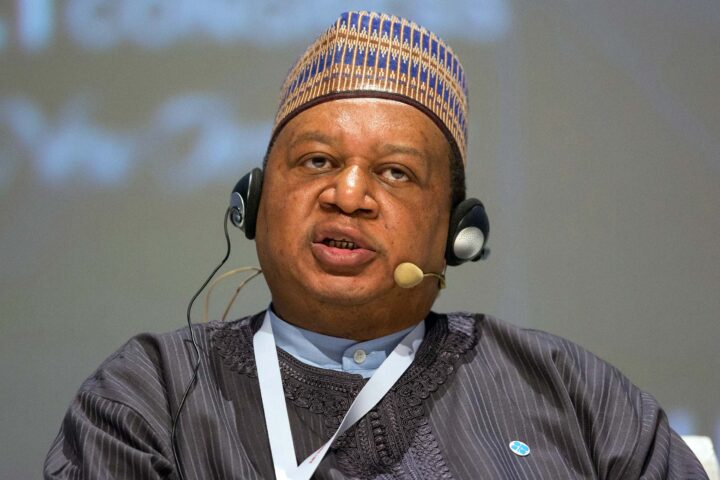Mohammad Barkindo, secretary-general, Organisation of Petroleum Exporting Countries (OPEC), says the global oil and gas industry will face a significant level of uncertainty in the weeks ahead due to the Omicron COVID-19 variant.
He said this at the 57th meeting of the joint technical committee (JTC) of the Declaration of Cooperation (DoC) convened on Wednesday.
The meeting was held ahead of the 35th meeting of the joint ministerial monitoring committee (JMMC) and the 23rd OPEC and non-OPEC ministerial meeting scheduled for today, December 2, 2021.
Barkindo recalled that the World Health Organisation (WHO) had designated it a “variant of concern” prompting stock market and oil market declines after the announcement was made.
Advertisement
He said that scientists fear the emerging strain could be more transmissible and have higher resistance to vaccines.
He added that the news of the development has resulted in governments re-imposing restrictions and travel bans.
“New cases of the variant are being reported in various parts of the world with each passing hour, thus we will need to remain vigilant in assessing the impacts of this latest chapter in the pandemic, as especially it relates to our demand scenarios,” Barkindo said.
Advertisement
According to the OPEC chief, steady progress has been made on the global economic recovery.
He, however, underscored the need to remain attentive to the prevailing uncertainties and shifting conditions, including those related to the new Omicron COVID-19 variant.
Quoting from the recently-released world oil outlook, Barkindo said that in terms of the global economy, the 2021 and 2022 gross domestic product (GDP) growth forecasts stand at 5.6 percent and 4.2 percent, respectively, unchanged from last month.
“In spite of the steady progress that has been made on the economic recovery, we do expect significant levels of uncertainty in the weeks ahead, which could slow down the growth momentum,” he said.
Advertisement
“In addition to closely monitoring the evolving impacts of the Omicron mutation, other factors to consider will be the pace of vaccine rollouts worldwide, the uneven pace of economic growth across global regions, supply chain disruptions and tight labour markets with potentially longer-lasting effects on inflation, as well as high debt levels in both the government and private sectors.”
As far as demand is concerned, Barkindo said that OPEC still foresees world oil demand increasing by 5.7 mb/d in 2021, revised lower by 0.16 mb/d from last month, mainly due to slower-than-anticipated demand from China and India during Q321.
In 2022, he noted that world oil demand is anticipated to increase by 4.2 mb/d, unchanged from last month while world total demand in 2021 is now pegged at 96.4 mb/d and at 100.6 mb/d in 2022, surpassing pre-pandemic levels.
Barkindo lamented that COVID-19 cases continue to rise in other regions, particularly in Europe, adding that the subsequent restrictions and lockdowns result in decreased consumption of transport fuels.
Advertisement
In addition to pandemic-related concerns, he stated that other demand-related uncertainties include trade tensions, ongoing supply chain backlogs, potential adverse weather conditions and evolving energy policy changes.
“In terms of the supply-side, non-OPEC supply in 2021 is expected to grow by 0.7 mb/d to average 63.6 mb/d, unchanged from last month. For 2022, non-OPEC supply growth is forecast at 3.0 mb/d for an average of 66.7 mb/d, also unchanged from last month,” he added.
Advertisement
“Additionally, we continue to monitor the ramifications of the announcement made last week regarding the coordinated total release of up to 70 million barrels of oil from the strategic reserves of major consuming countries.”
Advertisement
Add a comment






